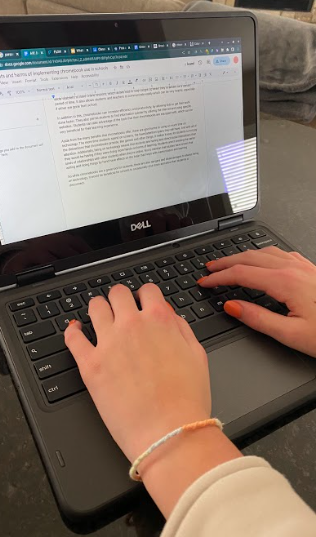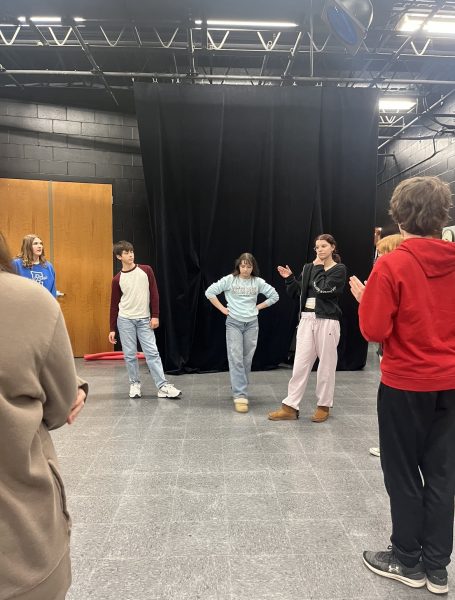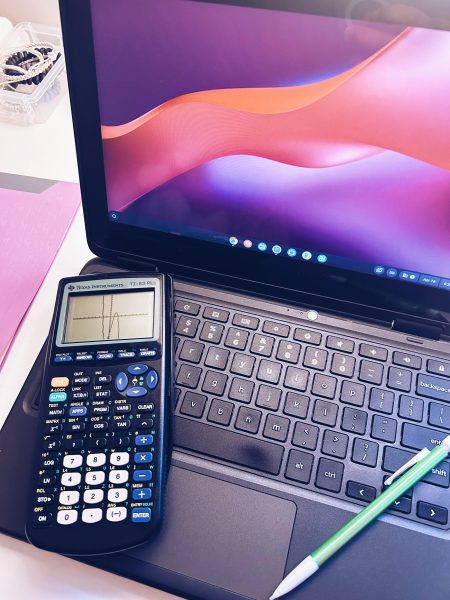Benefits and harms of excessive Chromebook use in schools

Photo by Avari Wischhof
Chromebooks offer many benefits for students, however technology always comes with dangers as well. Students who are always online can have disadvantages in their learning experience.
All kids grades K-12 in Lincoln Public Schools have the resource of using a school issued chromebook. While this handy technology driven tool can be very helpful when navigating the reins of schoolwork, there are some harms to the amount of hours kids spend on these chromebooks daily.
When the COVID pandemic struck in 2019, it forced schools to go remote, causing kids to spend hours everyday on screens. But now that kids are back full time, the question becomes should schools still be implementing so much chromebook use? There are many benefits and harms to using Chromebooks in schools in contrast to hands-on and paper activities.
Of course chromebooks offer many benefits, including the ability to learn from a distance. Just like managing school during COVID, students can still complete schoolwork when they’re not actually there. Chromebooks allow teachers to have online lessons, which allows kids to stay caught up when they’re absent for a period of time. It also allows students and teachers to communicate easily which can be very helpful.
In addition to this, chromebooks can increase efficiency and productivity by allowing kids to get their work done faster. They also permit students to find information quicker by utilizing the internet and databases. Students can take advantage of the tools that their chromebooks are equipped with which can be very beneficial for their learning experience.
Aside from the many benefits that chromebooks offer, there are also harms to spending large amounts of time on technology.The more time students spend on screens, the lower attention spans they will have. And with all of the distractions that chromebooks provide, such as games, focusing can be difficult for some students. Additionally, being on screens means that students are having less direct social interactions as opposed to if they were involved in a hands-on form of learning. Students aren’t creating the same kinds of relationships with other students when they’re online. Not to mention that studies have shown that writing and doing things by hand have beneficial effects on the brain that help with memorization and learning.
The Frederick twins, who are both sophomores at East were asked whether they prefer paper or a chromebook for doing school work, and they each had individual opinions on the matter.
“I personally prefer to take notes on paper because I don’t like being on technology all day long,” said Braxton Frederick. “I feel like writing things down, instead of typing them, allows me to get more out of what we’re learning.”
While Braxton makes a good point, Reid thinks differently.
“I like using Chromebooks because they’re very efficient and easy to use,” said Reid Frederick. “Using paper takes so much longer and it’s a lot harder to keep track of.”
So while chromebooks are a great tool for students, there are also dangers and disadvantages to always being on technology. It would be beneficial for schools to occasionally shut down and allow their students to disconnect.

Avari Wischof is a junior at East, and this will be her second year on the Oracle. She has one younger sister, two dogs, Mille and Jax, as well as a guinea...











